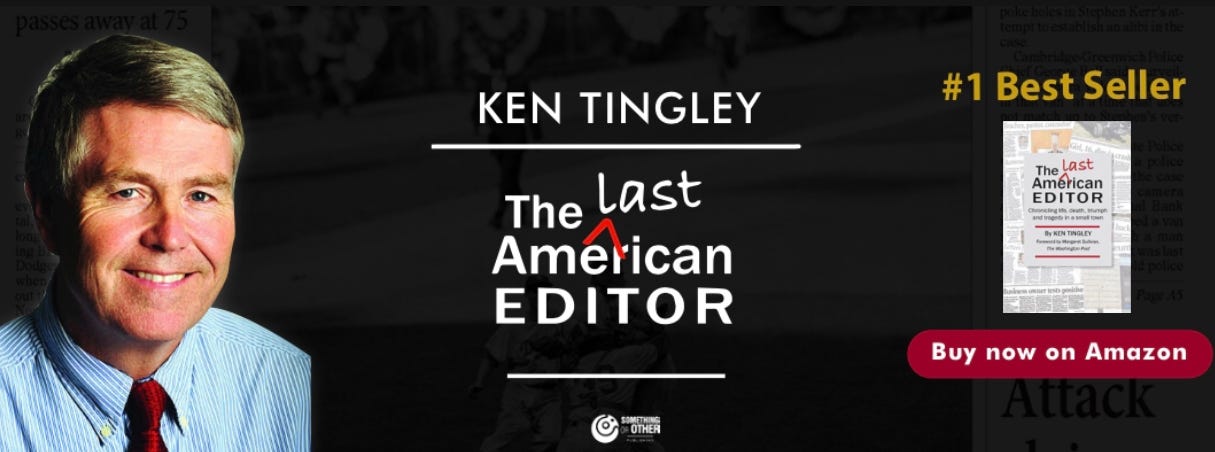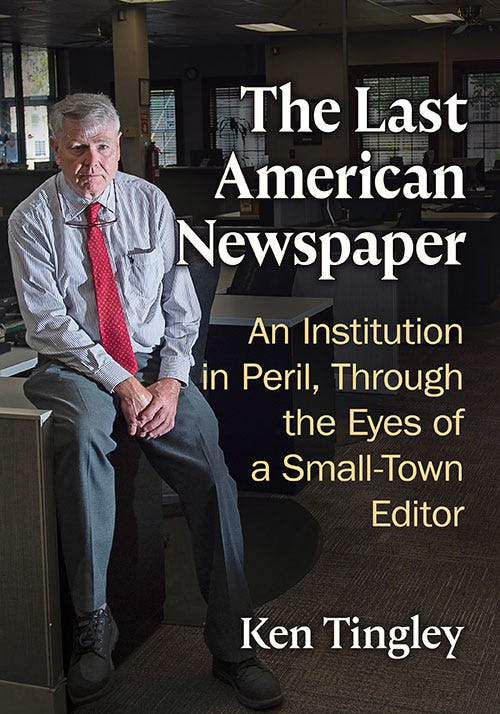The Front Page
Morning Update
Tuesday, March 22, 2022
By Ken Tingley
Batya Ungar-Sargon is the deputy opinion editor for Newsweek. I never heard of her before her appearance on “Real Time with Bill Maher” on HBO on March 11.
She is 41 years old which means she was born about the time I was starting my journalism career.
I understand that talking heads should not be taken too seriously on cable television. More often than not their goal is to be provocative while promoting their latest book. In this case, Ungar-Sargon set out to educate us about how the media in this country became elite with a brief history lesson.
She explained that after the movie “All the President’s Men” came out in the 1970s, students took to journalism because, “suddenly a journalist could be a sexy, sexpot who brought down a president.”
I was one of those journalism students who saw the film at the campus cinema and was inspired, but not because it made my career choice sexier, but because I might be able to make a difference in the world.
“After that movie, suddenly people who wanted to become famous, who wanted to be a big deal, who wanted to have higher status, they started considering to become journalists,” Ungar-Sargon said.
My memory of those early years in journalism had nothing to do with hoping to be famous, or even a big deal. At first it was just about having a job, and then about making a living to support my family. Sure, I wanted an audience for my writing at the small newspapers where I worked, but I never believed it would make me famous.
Ungar-Sargon kept digging.
She explained to Maher and New York Times columnist Frank Bruni that by the 1980s and 1990s, journalists “were much more highly educated, much more affluent and much more liberal than America overall.”
By 1988, I had worked at five small community newspapers in 11 years, but even as a sports editor who ran a department, I was hardly affluent. As far as I could see, none of my colleagues in the newsroom were remotely affluent either.
This is the problem when talking heads lump all journalists into one elite category based on their experiences in New York City and Washington, D.C.
Ungar-Sargon has a PhD from California Berkeley.
The vast majority of practicing journalists in this country work at small, community newspapers where they run into the people they are writing about in the supermarket or Little League game.
They are not famous.
They are not rich.
And I doubt many of them feel elite.
I was hoping Bruni might set Ungar-Sargon straight, but he did not. If anything, he confirmed her theories.
“I do think journalist have become detached from what they are supposed to cover, from the people are supposed to champion,” Bruni said.
Later this spring, my book “The Last American Newspaper” is being published. It chronicles two decades of outstanding journalism by the reporters and editors at The Post-Star in Glens Falls and how it made a difference in the small communities they covered.
It is a great example of journalists championing important community stories and regular people.
None of us ever became famous.
Few of us ever became affluent.
And if there was ever any glamor with the profession, I believe it wore off quickly.
But many of us made a living, provided for our families and were able to retire with our heads held high.
I hope that Ungar-Sargon gets a chance to read my book. I hope Bruni does, too. They both need history lesson about how community journalism is conducted in most of the country. Before then, they might want to check out the documentary “Storm Lake” and see how a family in central Iowa does community journalism.
They are neither elite nor affluent either.
To be released later this spring by McFarland Books.
Lake George housing
Good to see Lake George Mayor Robert Blais championing student housing for international workers in Lake George. As the tourist economy returns to full strength, those international students are going to be need to keep the restaurants and hotels operating efficiently.
Blais is requesting that local businesses chip in to house 75 hotel rooms for students. Blais started the Student Connection Committee back in 2016 to help students with any problems, including housing.
In the past, up to 1,500 international workers would come to Lake George to work.




I couldn't agree with you more. I've worked in the newspaper industry for over 30 years now. I'm not elite in any way. I'd be happy to finance a copy of your book to send to Ungar-Sargon, Bruni and Mahar. Local journalists aren't in it for the money or fame. (The thought of both almost make me laugh out loud) You need to believe in the First Amendment to stay in this industry for the long haul!
Am saddened by the fact that she was so well educated & to say such a thing and extremely disappointed with Bruni because the NYT usually gets it right in my book.